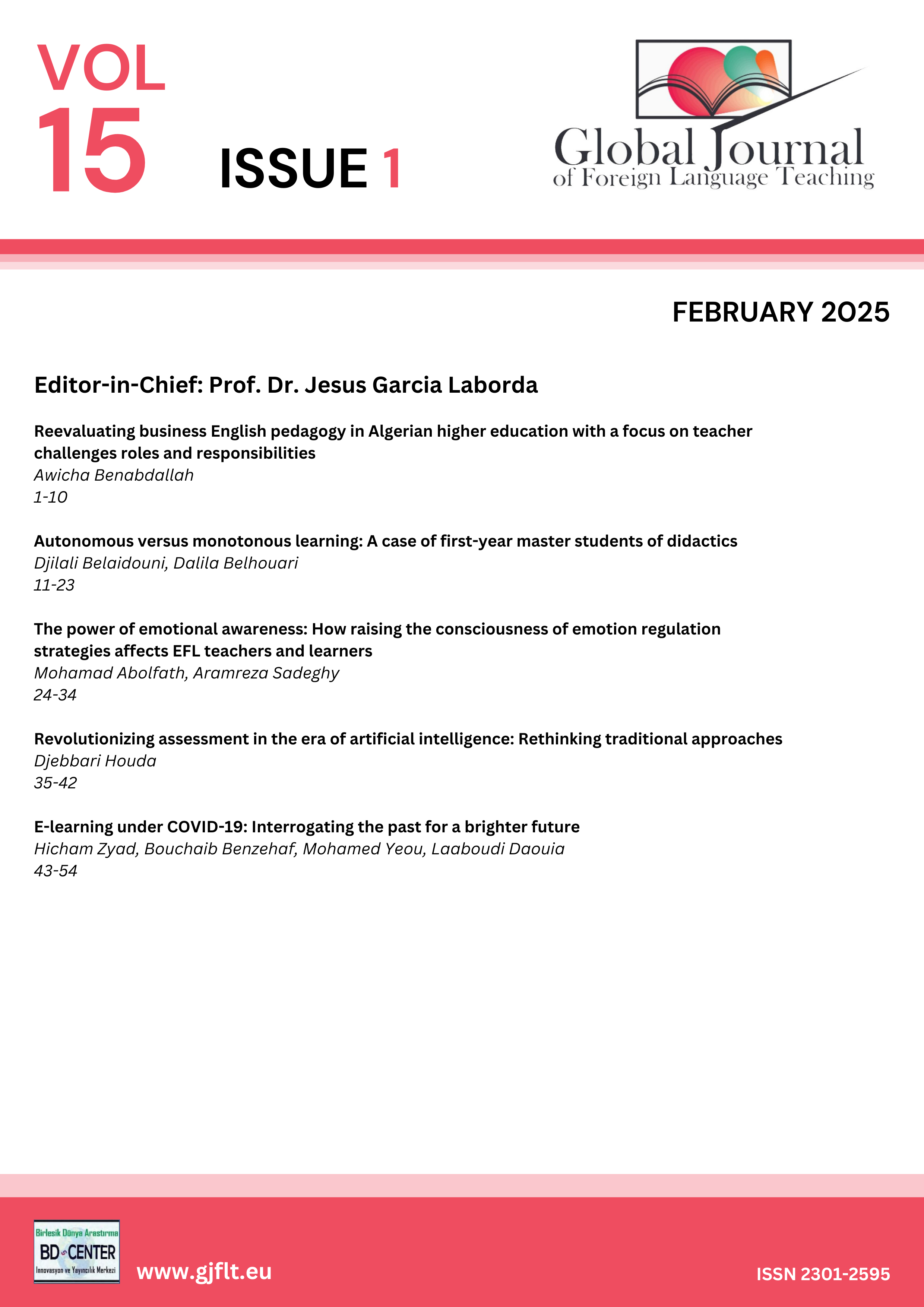The power of emotional awareness: How raising the consciousness of emotion regulation strategies affects EFL teachers and learners
Main Article Content
Abstract
Emotion regulation strategies are critical in the context of English as a Foreign Language (EFL) education as they influence both learning processes and outcomes. However, despite their importance, there is a gap in research particularly in non-Western contexts such as Iran regarding the application of these strategies in EFL classrooms. This study aims to bridge that gap by examining the use of three emotion regulation strategies: Situation Modification, Response Modification, and Cognitive Change within the Iranian EFL setting. The research reveals that Situation Modification is the most commonly employed strategy by learners followed by Response Modification and Cognitive Change. Additionally, a workshop intervention designed to enhance teachers’ ability to teach these strategies proved highly effective. The findings highlight the need for ongoing professional development for teachers and underscore the importance of integrating emotion regulation strategies into language learning practices. This study contributes to the limited body of knowledge on emotion regulation in EFL classrooms and calls for further investigation into its role in diverse educational contexts.
Keywords: Cognitive change; consciousness-raising; EFL education; emotion regulation strategies; situation modification; response modification.
Downloads
Article Details

This work is licensed under a Creative Commons Attribution-NonCommercial-NoDerivatives 4.0 International License.
Authors who publish with this journal agree to the following terms:- Authors retain copyright and grant the journal right of first publication with the work simultaneously licensed under a Creative Commons Attribution License that allows others to share the work with an acknowledgement of the work's authorship and initial publication in this journal.
- Authors are able to enter into separate, additional contractual arrangements for the non-exclusive distribution of the journal's published version of the work (e.g., post it to an institutional repository or publish it in a book), with an acknowledgement of its initial publication in this journal.
- Authors are permitted and encouraged to post their work online (e.g., in institutional repositories or on their website) prior to and during the submission process, as it can lead to productive exchanges, as well as earlier and greater citation of published work (SeeThe Effect of Open Access).
